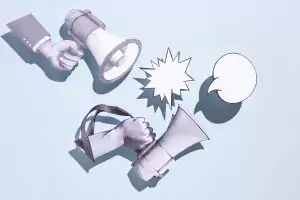
✅ AI Essay Writer ✅ AI Detector ✅ Plagchecker ✅ Paraphraser
✅ Summarizer ✅ Citation Generator
Hi everyone!
In order to increase the quality of your writing, it is important not only to use various literary techniques and such, but also to observe grammatical rules. Although grammatically-correct writing is a significant advantage, many people—including professional writers—write with mistakes. Perhaps, it is not a big deal for a taxi driver or an office manager, but you, as a writer, should be aware of the common (and cunning) grammatical mistakes you may accidentally make.
1. “Which” and “that.” At first glance, they might seem synonymous. However, there is a difference. “That” is a restrictive pronoun, and is usually used in restrictive relative clauses. It is a clause that contains information about a noun that stands before it, and which is essential for the whole meaning. “Which,” in its turn, is called a qualifying pronoun, and is used in non-restrictive relative clauses (which contains information that may be omitted without affecting the general meaning of a phrase).
e.g. I don’t eat food that is not organic.
e.g. I only buy organic food which you can find in special stores.
2. “Continual” and “continuous.” As well as in the previous case, these two are almost the same. The difference is “continual” means something that repeats always, in certain lapses of time, whereas “continuous” is used to mark something happening without gaps or pauses throughout a significant period of time.
3. “If” and “whether.” If someone told you these two are interchangeable, you were lied to. You use “if” when there are no alternative conditions for something to happen or not to happen. For example, you may say, “If I get paid tonight, I’m finally buying a tablet.” “Whether” is used when there are two or more alternatives. “I am not sure whether I’m going straight home after work or not.”
4. “Fewer” and “less.” “Less” is used with uncountables, qualities, or hypothetical quantities. “A year ago, I was far less confident about myself than today.” “Fewer” is used with countable quantities. “I smoke fewer cigarettes per day than my dad.”
5. “To be envious” and “to be jealous.” To be envious means to feel bad about someone’s success or good fortune. For example, when your friend wins the lottery, you might feel envious. Jealousy is basically the same feeling as fear, but you get it in situations when there is a threat of rivalry; for example, when a lottery-winning friend whom you envy flirts with your girlfriend/boyfriend.
Properly using the listed words will immediately improve your writing. More is coming.
Stay updated!
Follow us on Reddit for more insights and updates.
Comments (2)
Welcome to A*Help comments!
We’re all about debate and discussion at A*Help.
We value the diverse opinions of users, so you may find points of view that you don’t agree with. And that’s cool. However, there are certain things we’re not OK with: attempts to manipulate our data in any way, for example, or the posting of discriminative, offensive, hateful, or disparaging material.




A reliable usage guide will refute all your points.
Interesting you say that, because we used reliable guides to put this together.